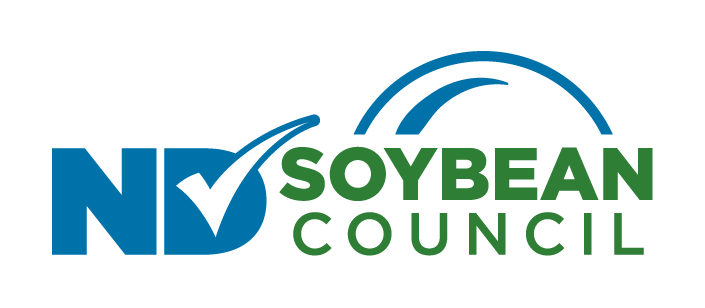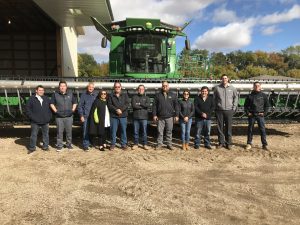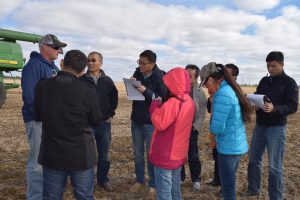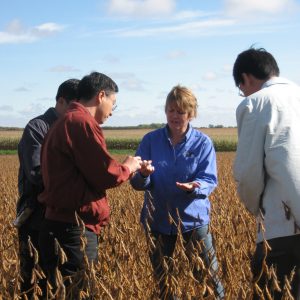U.S. Soybean Farmers Fill Global Demand
The soy checkoff invests every North Dakota soybean farmer’s investment to increase soy use by customers beyond the elevator, including international users. U.S. soy exports have grown steadily for the past 20 years. This growth (forecast by exporters and importers of U.S. soy to continue) can be attributed in part to soy-checkoff-funded efforts to build international sales of U.S. soy. As part of these U.S. farmer-funded activities, the North Dakota Soybean Council (NDSC) works to cultivate new markets or growth in existing ones.
The vast majority of soybeans grown in North Dakota are shipped by rail to the Pacific Northwest and are destined for southeast Asia, which is why international marketing continues to be a priority for the board. NDSC continues to annually fund projects, host international trade teams and build relationships with other countries to learn more about international market demands and soy needs overseas.



 This project (funded by the North Dakota, South Dakota and Minnesota state soybean boards) is designed to educate buyers in the soybean market to recognize critical amino-acid values rather than crude protein as the true indicator of the soybean feeding value. The goal is to no longer discount northern-grown soybeans due to the lower crude protein. To learn more about EAA,
This project (funded by the North Dakota, South Dakota and Minnesota state soybean boards) is designed to educate buyers in the soybean market to recognize critical amino-acid values rather than crude protein as the true indicator of the soybean feeding value. The goal is to no longer discount northern-grown soybeans due to the lower crude protein. To learn more about EAA, 
